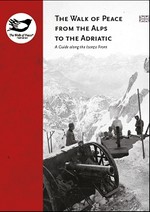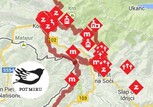Economy during the WW1
“Think my angel, such bread is made of straw; when eating it, you can hear the teeth grate”.
“On roads and fields the starving lie, the adults keep silent, but the children ask for bread we cannot give.”
“Harvests so /…/ bad it is not worth sowing.”
In addition to the initial elation, the war in Austria-Hungary also brought economic uncertainty caused by the mobilization of workforce since 60 % of men between 18 and 35 years old were mobilized in the Austrian part of the Monarchy. War economy was enacted, and the law on mandatory military service put the whole population and economy at the disposal of the military; all production and employees were under military control and direction and some mobilized fields worked exclusively for the military (railroad, post, telegraph etc.). The lack of workforce was compensated for by employing women, children, prisoners and refugees, by extending working hours and cancelling the laws prohibiting Sunday and holiday work. In winter 1914/15, unemployment transformed into a severe shortage of workforce, allowing women to enter traditionally male professions and even state service. The bad economic conditions were worsened by the blockade of bank savings accounts and high interests on loans; the Austrian government declared a moratorium on the debts of the drafted soldiers.
In all Slovenian lands of the Monarchy reigned extremely bad economic and living conditions. Supply warehouses were established for supplying the populace and rationed supply was introduced; ration-cards for food and essential goods were issued. In February, 1915, the use of bread flour was restricted; in spring, ration-cards for bread were given out to all agricultural inhabitants. In the beginning of 1916, sugar consumption was restricted, meat consumption was first regulated with the so-called meat-free days, and from the summer of 1916 onwards, people could only buy meat with cards, even potatoes were rationed. For the poor, ration-cards for shoes and clothes were implemented in the second half of 1917, and the rest of the population had to find theirs in the free market, with high prices and ‘laws’ of the black market and war profiteering. In the last year of the war, the supply system completely fell apart. The conditions in the countryside were miserable; the harvests during the war were bad and the weather conditions unfavourable enough to make the situation completely hopeless. There were not enough workers, no draught animals, thus women, children and the elderly were forced to perform heavy, too heavy tasks. Farmers had to sell surpluses of meat, wheat and potatoes at maximized prices to state offices. One of the main problems of the countryside was requisitions. Some farmers, however, made huge profits because of the great shortage of food, selling it to the city inhabitants, which enabled some of them to pay off their debts prematurely.
Dr Petra Svoljšak, Milko Kos Historical Institute at ZRC SAZU







